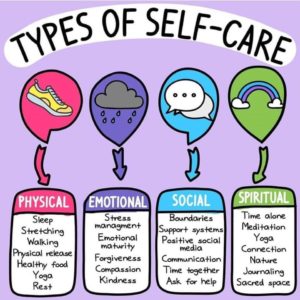The truth is, we are on a trial and error most of the time. There is no assuredness for things falling in place just as we want for sure, but there is hope. In order to navigate life’s complexities effectively, you need to master a range of skills which are essential for personal growth and professional success. Here, we explore some of the most critical skills to adopt while adulting and provide practical tips on how to develop them.
- Financial Literacy

I will just highlight on this since we have talked about the same under stability and adulting. Understanding how to manage money is crucial for achieving financial independence and stability.
Tips for Developing Financial Literacy:
- Budgeting: Create a monthly budget to track income and expenses. This could be by manual book keeping or using budgeting apps.
- Saving: always try to set aside a portion of your income for savings. You can aim for an emergency fund that covers at least three to six months of living expenses.
- Investing: Learn the basics of investing. Consider starting with low-risk options and those that you are well knowledgeable on.
- Credit Management: always try to understand the importance of the need you are taking credit for before making a step on the same to avoid unnecessary debts. Take responsibility of your debts and work on strategies to settle or reduce debt.
- Contentment: you should be able to understand your financial position and working within its limits. This should not be a limiting factor to your growth or dreams to aim higher but to survive in your current position
- Time Management

Time management is vital in your daily activities. This is one thing that can get you losing a gig, a business or even a job if not careful. Effective time management makes you be organized, confident and increases productivity.
Tips for Developing Time Management Skills:
- Prioritization: There is no such thing as being too busy, time is more spent on things that an individual feel like they matter. Being able to arrange your tasks and commitments based on their importance helps a lot on being able to meet deadlines and work effectively.
- Planning: To avoid spending time on unnecessary things that don’t add value to you, you have to plan well on your time. This assists you to avoid being swayed into activities you didn’t intend on and being able to accomplish your set goals.
- Delegation: learn to assign tasks when working in a group to free up on some time for other activities.
- Avoiding Procrastination: This is something that most are trapped in, procrastination. I will characterize it with the inability to break off your comfort zone. We will discuss it more diversely in the coming blogs.
- Communication Skills
![]()
Strong communication skills are vital for building relationships, resolving conflicts, and understand the response of the people around us. It also always one to understand the level of importance they portray in a certain social standing, their boundaries and needs.
Tips for Developing Communication Skills:
- Active Listening: Always practice listening attentively without interrupting, and show empathy by acknowledging the speaker’s feelings. By this you get enough time to process whatever is being communicated to you and plan out on the most appropriate response.
- Clarity and Conciseness: Be clear and concise in your speech and writing to avoid misunderstandings.
- Non-Verbal Communication: Try to pay attention to body language, facial expressions, and eye contact to reinforce your message.
- Feedback: Learn to give and receive feedback constructively. Understand people’s feedbacks about your moves/ actions and be able to distinguish between what you can use for improvement and what not to take in.
- Emotional Intelligence
Emotional intelligence (EQ) involves recognizing, understanding, and managing your emotions, as well as those of others.
Tips for Developing Emotional Intelligence:
- Self-Awareness: Reflect on your emotions and identify what triggers them. Be able to understand what makes you happy, sad or anxious and consider the correct strategies to keep a calm spirit.
- Self-Regulation: once you are aware of yourself, you will be able to practice impulses control and respond to situations calmly and rationally.
- Empathy: this is when you understand and share the feelings of others. It doesn’t have to do with overlooking your needs or fitting in situations. It has everything to do with giving the other party a chance to express themselves the way they are and make effective decisions on the same. Always try to be genuine and free when in such situations.
- Social Skills: Work on building rapport, maintaining relationships, and resolving conflicts effectively. Understanding your boundaries and being able to navigate through social circles.
- Problem-Solving Skills

Its often said that if you cannot be part of the solution then you will always be cause of the problem. Problem-solving is the ability to find solutions to difficult or complex issues, that’s brings in an understanding between the involved parties. Being open and accepting that there is a problem is the first step to solve one
Tips for Developing Problem-Solving Skills:
- Identify the Problem: Clearly define the problem before seeking solutions. This comes hand in hand with taking responsibility of the problem.
- Brainstorm Solutions: Generate a list of possible solutions without judging them initially.
- Evaluate Options: Assess the pros and cons of each solution to determine the best course of action.
- Implement and Review: Implement the chosen solution and review its effectiveness, making adjustments if necessary.
- Networking

Building a professional and social network can open doors to career opportunities and provide support and advice.
Tips for Developing Networking Skills:
- Attend Events: Participate in industry conferences, workshops, and social events to meet new people.
- Online Presence: Use professional networking platforms to connect with others in your field of interest.
- Follow Up: Maintain connections by following up with new contacts and keeping in touch regularly.
- Offer Help: Networking is a two-way street; offer your help and expertise to others as well.
- Adaptability

The ability to adapt to changing circumstances is vital in today’s fast-paced world. Being flexible enough in most circumstances assists you to learn a lot of new ideas that can help in expanding your creativity.
Tips for Developing Adaptability:
- Embrace Change: View change as an opportunity rather than a threat and embrace it.
- Stay Informed: Keep up with industry trends and continue learning to stay relevant.
- Be Flexible: Be open to new ideas and approaches, and be willing to adjust your plans as needed.
- Resilience: Build resilience by focusing on your strengths and learning from setbacks.
- Self-Care

Taking care of your physical and mental health is crucial for overall well-being and productivity.
Tips for Developing Self-Care Habits:
- Healthy Lifestyle: Maintain a balanced diet, exercise regularly, and get enough sleep.
- Stress Management: Practice stress-reducing techniques like meditation, yoga, or mindfulness.
- Work-Life Balance: Set boundaries to ensure you have time for relaxation and hobbies.
- Seek Help: Don’t hesitate to seek professional help if you’re struggling with mental health issues.
- Decision Making Skills

This is a vital skill that we can talk about wholly in our next blog. We all understand that 90% of our life today is the results of the decisions we made sometimes back. Just to highlight, this is the most daunting task that we have as adults. We will expand on decision making skills in our next blog.
